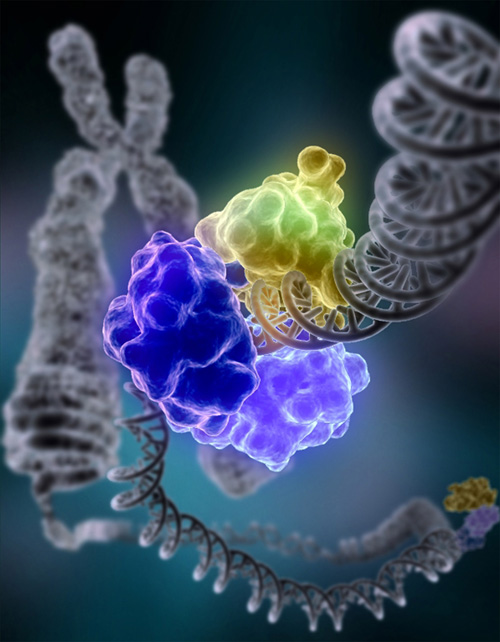I claim no such thing, what I tell people is that natural selection is an effect not a cause. What eliminates mutations are either the force of the effects or a repair mechanism in the DNA.
That is true in the cell. But that prevents variation from getting established in the species. If all mutations were eliminated in the process of cell reproduction, there would be no variation in the species and no evolution and no adaptation.
In fact, sexual reproduction is designed to generate variation, for even when there is no mutation due to miscopying, you still get new genetic combinations through chromosomal recombination and crossover.
Evolution deals with new genetic combinations that are expressed at the level of the organism i.e. those not corrected and those generated naturally by the very process of sexual reproduction.
When these are harmful, how are they eliminated or kept to a minimum so that the species as a whole is not harmed, even when unfortunate individuals are?
That is the question you never address, because you know the answer is exactly what juvenissen said. They are eliminated by effects of the environment. IOW by natural selection.
If DNA did not have repair mechanisms designed as part of system then selection would act on the deleterious effects. Your getting it twisted.
No, I am not getting it twisted. I am keeping my focus on the species, which is where evolution happens.
There is gene expression, genetic recombination and epigenetics. It is false to state that mutations are the only source of varitation.
Now THAT is true. Genetic recombination may be the most important source of variation. But all forms of miscopying (point insertions/deletions/duplications, indels, inversions, transpositions, etc) also contribute to variation. But whatever made you think scientists claimed mutations are the only source of variation?
Adaptations are the building blocks of evolutionary change, the molecular basis for them is far more important then an occasional beneficial effect from a failure of DNA repair.
And variation from any source, including mutations, is the building block of adaptation. How is an adaptation which first appears in a single individual extended to the species, Mark? How does variation become adaptation?
Functional constraint and DNA repair mechanisms keep mutations to a minimum.
In individual cells, yes, that's true. But we still get mutations expressed as variation, in organisms. That is the point where they become evolutionarily important, because that is the point where they become inheritable. That is the point where natural selection needs to function.
Life grinding to a halt is the function of natural selection and like I keep telling you, it's an effect not a cause. Natural selection is nothing more then the death of the less fit. It speaks to the survival of the fittest, not the arrival of the fittest.
It is the other way around. If no limit were placed on the inheritance of deleterious mutations, then the species would not likely survive long. It is because the fittest (or fitter) do survive, that the species keeps on living. But keeps on living as a somewhat changed species.
Natural selection is also an a priori assumption of exclusively naturalistic causes and evolutionists love to blend the two meanings as if they were one and the same.
It is an observation, a measurable result of the differential effect of environmental conditions on variations in character traits (and therefore, indirectly on genetic combinations).
The observation has nothing to do with philosophical assumptions. Philosophy can make what it wishes of the observed facts. Different philosophical predispositions will naturally tend toward different philosophical interpretations.
It's an effective way to win points in a debate but it should never be confused with the genuine article of science.
I agree, keep the philosophical speculations out of the science (at least as far as is humanly possible.)
All I ask for is your recognition of the role of natural selection as a scientific phenomenon pertinent to evolution.



